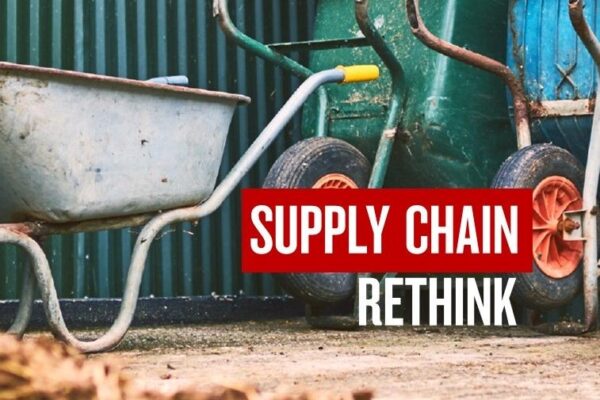We have previously reported on the current fragility of the Supply Chain and it continues to be of concern to the general public, who see the end result in empty shelves at retail level. Of course, the blockages come from much further down the pipeline and it is in fact a global issue. Over the past few days there has been much analysis in the media with written comment coming from some key figures. Following are some of their relevant conclusions.
The leading supermarket chains have issued statements and Coles included this observation:
“Over the last few months, the global and domestic disruption caused by the pandemic has presented us with a number of supply chain challenges. This includes a shortage of wooden pallets and transport workers, and international shipping delays. More recently, an increase in COVID case numbers in the community has required more people to isolate, which has meant fewer people are available to work in Australia – including in the food industry.
From University of Melbourne, Faculty of Business and Economics:
“The coronavirus pandemic is only the latest shock to supply chains – but COVID-19 is a wake-up call to businesses in terms of the cost of being under-prepared. The Australian supermarket chain, Woolworths, has announced that it’s closing all of its supermarkets nationwide early for one night, so it can restock stores in an effort to manage panic buying in the face of COVID-19 pandemic.
“But it’s not just here in Australia. Community fears over COVID-19 has led to consumers around the world panic-buying goods. And it highlights the risk this pandemic is posing to supply chains. But COVID-19’s impact on supply chains is making itself felt in a range of industries.
Apple has suffered component shortages for iPhones because of temporary manufacturing plant closure in China.
Car maker, Hyundai Motors has closed seven factories in South Korea, which makes up approximately 40 per cent of global output, because of supply shortages from its China-based suppliers.
According to Channel News Asia, Airbus has shut its Tianjin factory for assembling both A320 and A330 aircrafts.
While, consumer goods company Procter & Gamble has also faced challenges as a result of its 387 suppliers across China.
A piece written by Sam Whelan for The Loadstar online (whose slogan is, Making Sense of the Supply Chain) informs us: […] Neil Chambers, director of the Container Transport Alliance of Australia (CTAA), […] said the highly infectious Omicron variant had “changed the game” for Australia’s container logistics chain, placing it under “enormous strain, with no part unaffected.
“Mr Chambers explained: “Container transport operators across Australia have reported to CTAA that they are experiencing between a 5-20% reduction in available staff, including heavy vehicle drivers, warehouse staff, forklift drivers, container unpack crews and administrators, due to Covid infections and isolation requirements. In extreme cases, this rises close to 50% of available labour.
“Compounding this is staff shortages at customer premises, international container stevedore terminals and empty container parks across the country, significantly delaying the movement of containers through the supply chain.”
In an update yesterday, DP World said it was “experiencing some scheduling delays” due to the impact of Covid on its workforce. It added: “Approximately 10% of our workforce are impacted through either having contracted Covid-19 or isolating at home with a positive case in their household. These numbers may increase as Australia works through the current wave.”
The NAB Business Research and Insights notes:
“What COVID has highlighted to a number of businesses in Australia is just how reliant they were on China, and reliant in some cases on a single supplier in a single country,” said Casey Morecroft, Head of Corporate in Victoria and South Australia at National Australia Bank. “That put a lot of pressure on people when that supply chain was disrupted, and it triggered a process around assessing alternatives.”
Businesses have adopted a range of strategies both to help manage the immediate supply chain crunch but also to bolster their supply chains to deal with future disruptions. They are seeking out low-cost manufacturing destinations in Asia other than China; broadening their range of suppliers; and seeking to bring more manufacturing and supply on-shore where feasible.
Companies are also rethinking just-in-time inventory management and the wisdom of keeping costs down by holding as little stock as possible.
We continue to monitor the situation and will bring you further updates.
As a licensed Customs Broker and International Freight Forwarder, Colless Young offers you correct, professional advice on all your import and export shipping and trade activities. Based in Brisbane, we provide a complete range of logistics services, both air and sea cargo, through all Australian ports and airports. We handle trucking, warehousing, customs clearance, quarantine inspections and fumigation treatment.

